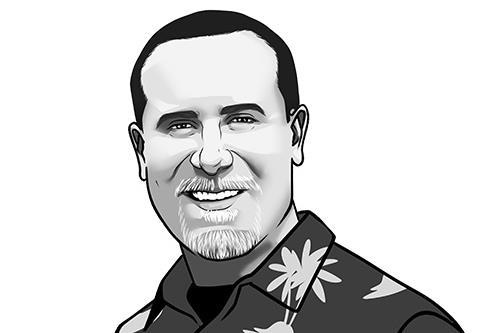Meet the Global Ambassadors: Our Q&A with Matthew B Sullivan

The Microbiologist chats with our new Global Ambassador for the United States, Matthew B Sullivan, who is Professor of Microbiology and Director of the Center of Microbiome Science, at The Ohio State University.
Dr. Matthew B. Sullivan’s research focus is on the co-evolution of microbe and virus (phage) in environmental populations, as well as the impact of marine phages on microbe-mediated global biogeochemistry.
Genomics and model-systems-based experimentation has revealed that cyanobacterial phages often contain host photosynthesis genes, which are expressed during infection and act as a diversity generator for their numerically-dominant, globally-distributed photosynthetic hosts. Using a genomic and metagenomic toolkit, the group query ‘wild’ viral populations to identify important hypotheses that can be evaluated using model-system approaches with appropriate phage isolates.
The Sullivan lab is also developing single-cell assays to investigate questions that are critical for modeling and predicting the impacts of phage-host interactions in the wild. Specifically, these include gaining an understanding of the in situ host range of phage isolates, the metabolic capacity of to-date uncultured phage-host systems, the impacts of host growth status on phage production, and the fraction of microbial cells that are infected in wild populations.
What first sparked your love of microbiology?
I was doing a summer research program trying to use phages as a replacement for antibody-based labeling of cell surface proteins. Though I failed in the summer “phage display” research project, I learned that there were millions to hundreds of millions of viruses in a drop of seawater and all scientists really knew was that they were there and could be counted (i.e. with DNA stains). The idea of genomics was new at the time, but I thought there must be so many stories to tell in these viruses … and the rest is history.
What’s the microbe that most fascinates you and why?
T4-like viruses. They have so many genes (30-50+) that they need to make their particles and adapt to their hosts, their structures are incredibly complex for a non-living entity, and they pack “extra” genes into their genomes to adapt. What could their (genomic) stories have to tell us? I was hooked.
What’s the best career advice you’ve ever been given?
It’s real easy to worry about what’s next, but it’s powerful to live in the present. Meaning, what you are doing right now might not be what you dreamed as your ultimate career, but if you excel at it that will open doors. Figuring out which doors you want open and being intentional about which ones to open is the time to be choosy and worry about what’s next. Starting out, just do your best at what is in front of you and enjoy the process of learning.
What real-world problem would you eventually love to solve with microbiology?
Microbes are intimately involved with so much on this planet. I’d love to see us (in the field) understand enough of the rules that microbes live by that we can really dial up or down microbiome features and ecosystem outputs at will. Soil microbes could sequester carbon rather than release it as soils thaw, ocean microbes could sink carbon to give humans a little more time to rethink our carbon-careless economies and lifestyles. And I’d love to see phages be part of that microbiome engineering toolkit and modeling be used to assess unintended consequences of any engineered solutions.
What keeps you awake at night?
The unintended consequences – will we see them, and will they be worse than where we started?
What do you do to relax?
Paddle. Hike. Cook. So important to get time to be human, and for me at least to be overwhelmed by our natural world and the small part we all – individually – play in it.
Why did you apply to become a Global Ambassador and what would you like to do in your new role?
AMI is trying to do the impossible. Communicate the importance and complexities of microbiomes to the people that can change the planet – the public, policy makers, companies. I want to be part of that.
Find out about becoming a Global Ambassador with AMI.
